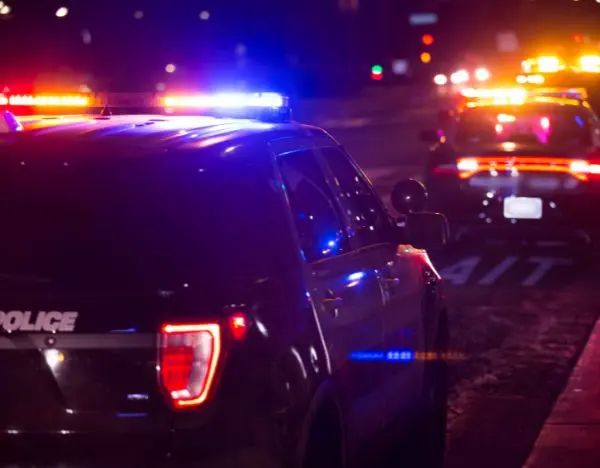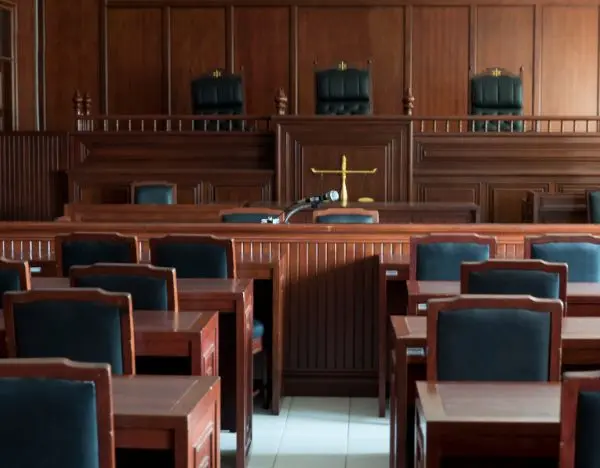When Do You Need a Lawyer for a DUI/DWI Charge?

Facing a DUI (Driving Under the Influence) or DWI (Driving While Intoxicated) charge can be a daunting experience, with potential legal, personal, and professional consequences. In such situations, the guidance of a seasoned lawyer is not just beneficial; it's often crucial. This blog explores the scenarios where hiring a lawyer for a DUI/DWI charge becomes essential, highlighting how an experienced DUI/DWI lawyer can significantly affect the outcome of your case.
What Constitutes a DUI/DWI in Buffalo, NY?
In Buffalo, NY, a DUI (Driving Under the Influence) and DWI (Driving While Intoxicated) refer to offenses that involve operating a motor vehicle while impaired or intoxicated by alcohol or drugs. New York State law defines these terms and sets specific criteria for what constitutes a DUI/DWI offense. Understanding these legal definitions and the associated thresholds is crucial for any driver in the area.
Blood Alcohol Concentration (BAC) Levels
New York State law sets the standard BAC limit at 0.08% for drivers over the age of 21. This means that if a chemical test (breath, blood, or urine) measures your BAC at 0.08% or higher, you can be charged with a DWI. For commercial drivers, the BAC threshold is lower, at 0.04%. Drivers under the age of 21, who fall under the Zero Tolerance Law, face a DWI charge if their BAC is between 0.02% and 0.07%.
Driving While Ability Impaired by Alcohol (DWAI/Alcohol)
In New York, you can be charged with Driving While Ability Impaired (DWAI) if your BAC is more than 0.05% but less than 0.07%, or if there is other evidence of impairment. DWAI is considered a traffic infraction rather than a criminal offense, but it still carries significant penalties, including fines, license suspension, and possible jail time.
Driving While Ability Impaired by Drugs (DWAI/Drugs)
You can also be charged with DWAI/Drugs if you are found to be driving under the influence of illegal drugs or prescription medications that impair your ability to drive. This is a separate charge from DWAI/Alcohol and carries similar penalties.
Aggravated DWI
An Aggravated DWI charge applies if your BAC is 0.18% or higher. This is a more serious charge than a standard DWI and results in harsher penalties, reflecting the greater potential risk to public safety.
Combined Influence of Drugs and Alcohol
If you are driving under the combined influence of alcohol and drugs, even if your BAC is below 0.08%, you can still be charged with a DWI or DWAI. This reflects the increased impairment caused by mixing substances.
Refusal to Take a Chemical Test
Under New York's Implied Consent Law, by driving on New York roads, you automatically consent to take a chemical test (breath, blood, or urine) if requested by a police officer. Refusing to take this test can result in a charge and automatic license suspension, regardless of whether you were actually impaired at the time.
When to Hire a DUI/DWI Lawyer

Navigating a DUI (Driving Under the Influence) or DWI (Driving While Intoxicated) charge can be complex and intimidating. Understanding the right time to seek legal representation is crucial to protect your rights and potentially mitigate the consequences. Here’s a detailed look at when you should consider hiring a DUI/DWI lawyer:
1. Immediately After an Arrest
As soon as you are detained for a DUI/DWI, it's essential to consult with a lawyer. The early stages of your case involve critical decisions—such as whether to submit to a breathalyzer test—which can significantly impact the outcome. A lawyer can provide guidance on these decisions and begin crafting a defense strategy based on the specifics of your arrest.
2. Facing Serious Charges
If your DUI/DWI charge involves aggravating factors—like a high blood alcohol concentration (BAC), an accident, injuries to others, or if a minor was present in the vehicle—you face enhanced penalties and charges. A DUI/DWI lawyer has the experience to navigate these complex situations, potentially reducing the severity of the charges through plea negotiations or by challenging the admissibility of evidence.
3. Prior Convictions
For those with prior DUI/DWI convictions, the stakes are much higher, as penalties escalate with each subsequent offense. A skilled DUI/DWI lawyer can leverage their understanding of the legal system to fight for more favorable outcomes, such as reduced jail time or alternative sentencing options like rehabilitation programs.
4. Professional and Personal Consequences
Certain professions, particularly those involving driving or operating heavy machinery, may not tolerate DUI/DWI convictions, putting your job and future employment opportunities at risk. Furthermore, a conviction could lead to significant personal consequences, including strained family relationships and social stigma. A lawyer can work to minimize these impacts by seeking penalties that are less disruptive to your personal and professional life.
5. Contesting the Evidence
If there are grounds to believe that the evidence against you was improperly obtained or the arrest was conducted without proper legal procedure, a DUI/DWI lawyer can challenge these issues in court. This might include contesting the traffic stop's legality, the accuracy and operation of breathalyzer tests, or the conduct of field sobriety tests. Successfully challenging such evidence could lead to a reduction or dismissal of charges.
6. License Suspension Hearings
A DUI/DWI arrest typically triggers an administrative proceeding regarding the suspension of your driving license, separate from the criminal case. A lawyer can represent you in these proceedings, arguing to retain or restore your driving privileges, which is crucial for maintaining your mobility and independence.
7. Negotiating Plea Deals
In cases where the evidence is strong, an experienced lawyer might negotiate a plea deal with the prosecutor, resulting in lower charges or penalties. This is particularly important in reducing the long-term impacts of a DUI/DWI conviction, such as decreased jail time, lower fines, or alternative sentences that might include community service or probation.
Consequences of a DUI Conviction in Buffalo, NY
A DUI (Driving Under the Influence) or DWI (Driving While Intoxicated) conviction in Buffalo, New York, carries significant legal, financial, and personal consequences. Understanding these impacts is crucial for anyone facing such charges. Here’s an overview of what to expect if convicted of a DUI/DWI in Buffalo:
Legal Penalties:
- First Offense: For a first-time DUI/DWI offense, individuals can expect a misdemeanor charge, up to $1,000 in fines, up to one year in jail, and a minimum six-month driver's license suspension.
- Second Offense (within 10 years): A second offense is considered an E felony and may result in fines ranging from $1,000 to $5,000, up to four years in jail, and a minimum one-year driver's license suspension.
- Third Offense (within 10 years): This is also classified as a D felony, with fines from $2,000 to $10,000, up to seven years in jail, and at least a one-year license suspension.
Financial Implications:
- Fines and Surcharges: Apart from the base fines, there are additional surcharges and fees, such as the New York State surcharge and a potential Driver Responsibility Assessment fee, which can total hundreds of dollars over three years.
- Insurance Rates: A DUI/DWI conviction will likely lead to increased car insurance premiums. Insurers may classify you as a high-risk driver, significantly increasing your insurance costs for several years.
- Legal Costs: Defending a DUI/DWI charge involves attorney’s fees, court costs, and possibly the cost of bail. These can add up quickly, making the financial burden of a DUI/DWI substantial.
Driver’s License Issues:
- Suspension or Revocation: As noted, a DUI/DWI conviction typically leads to a driver's license suspension or revocation. This loss of driving privileges affects your ability to commute to work, fulfill personal obligations, and maintain your usual daily activities.
- Conditional License: In some cases, you might be eligible for a conditional license, which allows you to drive within certain restrictions, typically to and from work, school, and DUI/DWI education programs.
Employment Consequences:
- Job Loss: Certain professions, particularly those involving driving or the operation of heavy machinery, may not tolerate a DUI/DWI conviction. This can lead to job termination.
- Future Employment: A DUI/DWI conviction can hinder future job prospects, as many employers conduct background checks and may hesitate to hire someone with a criminal record.
Educational and Housing Impact:
- Educational Opportunities: Students may face disciplinary actions from their educational institutions, lose scholarships, or have their admission to certain colleges impacted.
- Housing Applications: Similar to employment, landlords may conduct background checks and could deny housing to someone with a criminal record.
Social and Personal Relationships:
- Stigma and Stress: The social stigma associated with a DUI/DWI conviction can strain personal relationships. The legal process and its outcomes can also lead to stress and emotional distress.
Required Education and Treatment Programs:
- DUI/DWI School: Convicted individuals may be required to attend DUI/DWI education programs, which focus on the dangers of impaired driving.
- Substance Abuse Treatment: In cases involving substance abuse, participation in treatment programs might be mandated as part of the sentence or to regain driving privileges.
What Will a DWI Defense Lawyer Do for Me?
Hiring a defense lawyer can be a pivotal decision if you're facing a DWI (Driving While Intoxicated) charge. A DWI defense lawyer has experience in the laws and procedures related to DWI cases and provides essential services that can greatly impact the outcome of your case. Here’s what a DWI defense lawyer will typically do for you:
Case Evaluation
A DWI defense lawyer will start by thoroughly evaluating your case, reviewing your arrest details, and examining the evidence against you. This includes assessing the police report, breathalyzer results, field sobriety test procedures, and witness statements. This comprehensive evaluation helps identify procedural errors or weaknesses in the prosecution's case.
Legal Guidance and Strategy
Your DUI/DWI lawyer will explain the legal process, the charges against you, the potential penalties, and rights. Based on the initial assessment, they will develop a strategic defense tailored to your situation. This strategy might involve challenging the traffic stop's legality, the accuracy of the breathalyzer equipment, or the conduct of field sobriety tests.
Representation at Hearings and Trial
A DWI lawyer represents you at all required court appearances, including arraignments, pre-trial hearings, and the trial itself. Having an experienced advocate on your side can be crucial, especially during interactions with prosecutors and judges. If your case goes to trial, your lawyer will argue on your behalf, cross-examine witnesses, and work to secure a favorable jury verdict.
Plea Bargaining
A DWI lawyer often negotiates a plea bargain with the prosecutor. If the evidence against you is strong, negotiating a plea deal may result in reduced charges or lighter penalties. An experienced lawyer can leverage their knowledge and relationships to negotiate your best terms.
License Suspension Issues
DWI charges typically involve an administrative component regarding suspending your driver’s license. In administrative hearings, your lawyer can advocate for you to challenge the license suspension. They may also help you obtain a conditional license, which allows you to drive under specific restrictions.
Mitigating Factors and Sentencing
If a conviction is inevitable, a DWI lawyer can work to minimize the impact of sentencing. They can present mitigating factors such as a clean prior record, the non-dangerous nature of the incident, or personal circumstances that warrant leniency. They might also argue for alternatives to jail, such as community service, probation, or enrollment in alcohol education or rehabilitation programs.
Post-Conviction Relief
After a conviction, a DWI lawyer can assist with appeals or expungement procedures, if applicable. This can be important for clearing or improving your legal record and easing long-term consequences.
Emotional Support and Practical Advice
Facing a DWI charge can be stressful and intimidating. A DWI lawyer also acts as a counselor, providing legal and emotional support. They offer practical advice on handling the case's impact on your personal and professional life.
Ready for a Strong Defense? Contact Trbovich Law Firm Today!
If you're facing a DWI charge, don't navigate this challenging time alone. The experienced attorneys at Trbovich Law Firm are ready to assess your case, provide personalized legal strategies, and advocate fiercely on your behalf. Contact us today to schedule a consultation and start building your defense. We’re here to help you achieve the best possible outcome.

